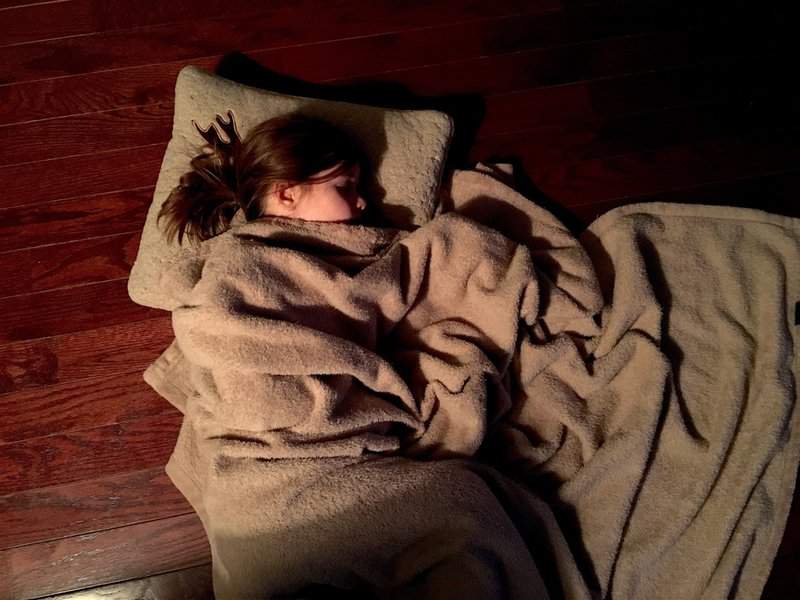Sleep is essential for your good health and mental well-being. While most people rejoice at the coming of summer, others discover that increasing temperatures cause a significant issue: sleep disruption. Sleep deprivation may exacerbate or create physical and mental health issues.
The bedroom environment, including light, sound, and temperature, directly impacts sleep quality. Too much light may lead to shorter, fragmented sleep, and excessive sounds can disrupt sleep.
Similarly, being excessively hot at night may create discomfort and unwelcome awareness and interfere with deep sleep. Body temperature lowers before night and continues to dip after sleeping. Too much heat or cold disrupts this process and reduces sleep quality.
Here is how you can ensure quality sleep during hot summer nights…
During the day, keep the heat out.
Avoid heat from building up within your bedroom throughout the day. Though you might simply adjust the thermostat, some folks do not have air conditioning or choose not to use their A/C all day. Fortunately, there are many strategies to cool down your sleeping environment, beginning with knowing what factors influence heat levels.
Temperatures may rise significantly when exposed to direct sunshine. Heat may also accumulate when hot air flows inside or heat are transmitted from walls and other solid things.
Block heat from your bedroom by:
- Draw the blinds or shut the curtains to block direct sunlight and minimize the heat entering your living area.
- Turn off bright lights: Your lamps and in-house lights may emit heat depending on the kind of bulb they use.
- Avoid using certain appliances: On hot days, avoid using equipment that produces a lot of heat, such as an oven.
- Shut the windows: Heat enters your house through open windows, raising the temperature.
- Close interior doors: Because heat may flow through the air, closing inside doors lowers the amount of warm air that can transfer between rooms.
- Gaps in walls, doors, and windows produce air leaks that enable heat to enter your house. You may use caulk or weather stripping to remedy leaks in various spots. You may also hire an energy assessor to check your home for leaks.
- Modern windows are generally coated in a substance that minimizes the heat that may travel through.
- Check your insulation: Insulation acts as a buffer, slowing the transmission of heat into your house, so ensure you have enough and that it is correctly placed.
Circulate the Air in Your Room
Keeping the air circulating in your bedroom may help you take advantage of sweating, one of the body’s natural cooling mechanisms.
You may use these strategies to keep air moving in your room to help with cooling.
Use a fan: While all kinds of fans provide a refreshing breeze, ceiling fans generate a steady airflow and are the most effective air circulators available.
Ventilation: If it is warmer inside the room than outside, natural ventilation might help to cool your house. This often entails opening windows on each side of your house or the lower and higher floors, letting colder air from outside enter through one window and warmer air exit via the other.
Cool Materials for Sleeping
Another thing you can do to enhance your sleep quality is to ensure your mattress, sheets, and clothes are composed of cool and comfortable materials.
Mattresses are sometimes disregarded regarding sleeping temperature, yet they may influence whether you sleep hot or cold.
A mattress’s materials and design influence airflow inside and around your body. As a consequence, various kinds of mattresses have varying effects on sleeping temperature.
Foam mattresses tend to retain more heat than other mattress kinds. Softer foams like memory foam may absorb and retain excess body heat.
A mattress’s feel may also influence its temperature regulation. The deeper you sink into a bed, the harder air can travel over your skin and cool you off. Consequently, soft mattresses are more prone to sleeping warmer than harder mattresses.
Use different bedding
The sheets and blankets you use at night might impact your body temperature.
Materials that absorb moisture and wick it away from the body may allow for more accurate temperature control through sweat. Cotton and wool are two fabrics recognized for their ability to absorb moisture.
The sheets that feel the lightest, coolest, and most comfortable may differ depending on personal tastes and the fabric’s texture, weave, and thickness.
You may not need a blanket at all, but if you must, consider one that is thinner and more breathable. Depending on your temperature during the night, having layers that you can quickly add or remove may be beneficial in warmer weather. In addition, heavier quilts may be stored for winter.
Put on a pair of comfortable pajamas.
The garments you wear to bed might affect your body temperature and comfort while sleeping. As with beds, lighter and more breathable fabrics that wick moisture may be better. These may provide comfort and cooling by using the body’s natural temperature regulation mechanism through sweat.
Heavier fabrics, such as flannel, are often not ideal for hot weather. Instead, wear lighter, looser clothes that do not obstruct airflow around your skin.
Heat isn’t the only element that impacts your sleep, so choose pajamas from https://lunya.co/ that feel comfortable to fall asleep more quickly at night.
Another alternative is to sleep naked. While this method is not for everyone, it may help prevent garments from blocking airflow around the body.
Take a long, hot bath or shower.
Although it may seem contradictory, a warm bath or shower may help you sleep better.
When you take a warm shower or bath for more than 10 minutes, your body reacts by distributing heat from your core through your hands and feet. This results in a reduction in body temperature that might encourage sleep.
Because this procedure might take some time, it may be advisable to take a warm bath or shower one to two hours before bed. When it’s hot outdoors, take warm baths and showers with care so you don’t overheat while bathing.
You could find yourself wishing for a cold shower. Although this might help avoid heat exhaustion, cold water may cause you to feel more alert and awake. Allow yourself time to wind down before bed if you believe a cold shower would help.











